Relais & Châteaux Properties Combat Climate Change Through Wine & Cheese
Since 2014, Relais & Châteaux has been striving to make a better world through cuisine and hospitality in a manifesto orginally presented to UNESCO. In a partnership with NGO Slow Food, they have forged an annual campaign called Food For Change, focused on celebrating agricultural biodiversity with the goal of shifting consumer behavior. This year's focus is on wine and cheese, with Relais & Châteaux members around the world raising awareness of local cheeses and wines by instituting Slow Food’s guidelines for best practices. Importantly, they are also instituting Slow Food’s guidelines on supply chain management, animal welfare, and regenerative agriculture throughout its hundreds of members. Relais & Châteaux and Slow Food created an easy, digestible consumer guide — addressing important questions like...why buy cheese made from raw milk? And, what does it mean if a wine has sulfites?
I had the chance to ask owners, operators, and those super close to some Relais & Châteaux properties on different continents how they are combating climate change from the perspective of hospitality and agricultural elements. Their answers below are heart-warming and indicative of just how aware the hotel and restaurant businesses are of the role they play in directing the necessary shift in consumer behavior.
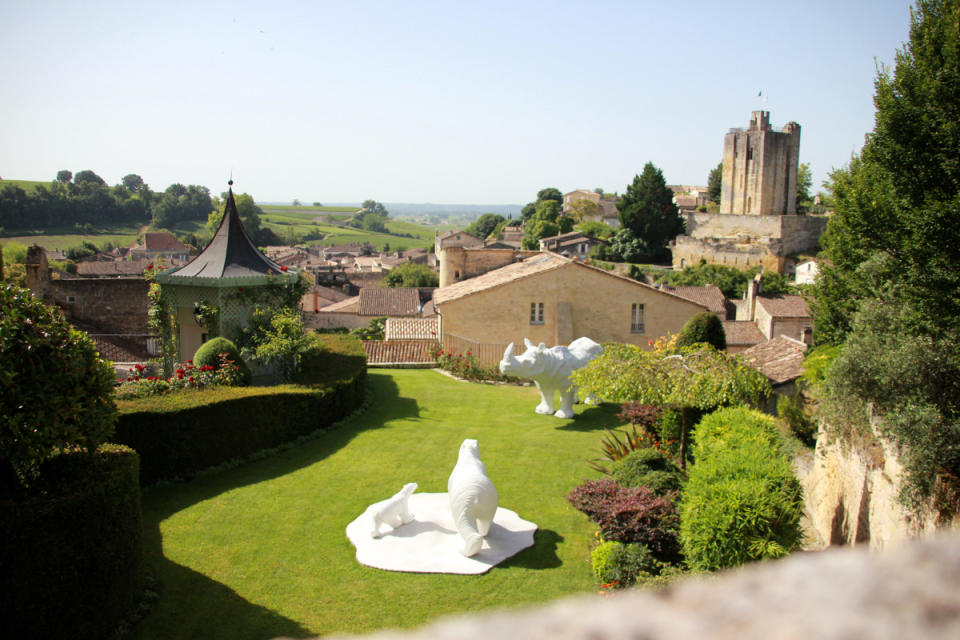
Courtesy of Hôtel de Pavie | Photo by E. Bartgelemy
Our traditional method of cultivation allows our soils to retain the coolness they need to withstand the heat of the summer. As we have seen in the hottest vintages, the leaves stay green and our vines don't suffer. Gradually, a larger proportion of Cabernet-Sauvignon, alongside Cabernet Franc and Merlot, has been added to the vineyard's grape varieties. Begun in 1998, this approach is now coming into its own. The plots replanted with Cabernet Sauvignon are now fully expressing their potential. While rising temperatures can make Merlot wines more alcoholic, a balanced blend (around 50% Merlot, 50% Cabernet) guarantees the freshness of Château Pavie wines, even in vintages known to be particularly hot.
We promote environmentally-friendly practices and aim to produce a wine with minimal impact on the environment. As proof of this commitment, Château Pavie is certified HVE level 3 (High Environmental Value). This French certification guarantees that the agricultural practices implemented throughout the domain preserve the ecosystems and limit the impact on the environment (soil, water, biodiversity...).
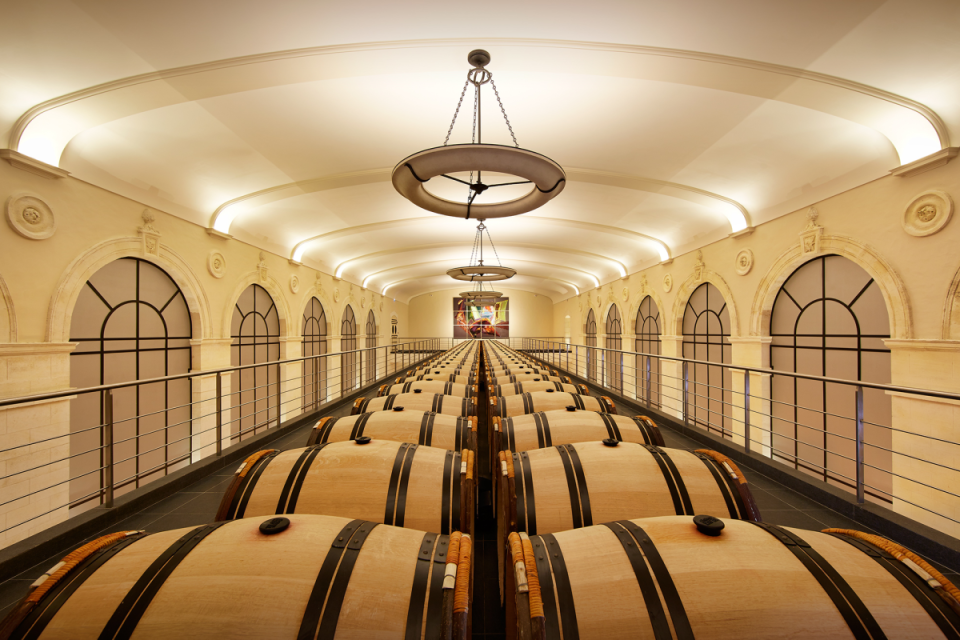
The barrel room at Château Pavie.
Courtesy of Château Pavie | Photo by Serge Chapuis
View the 11 images of this gallery on the original article
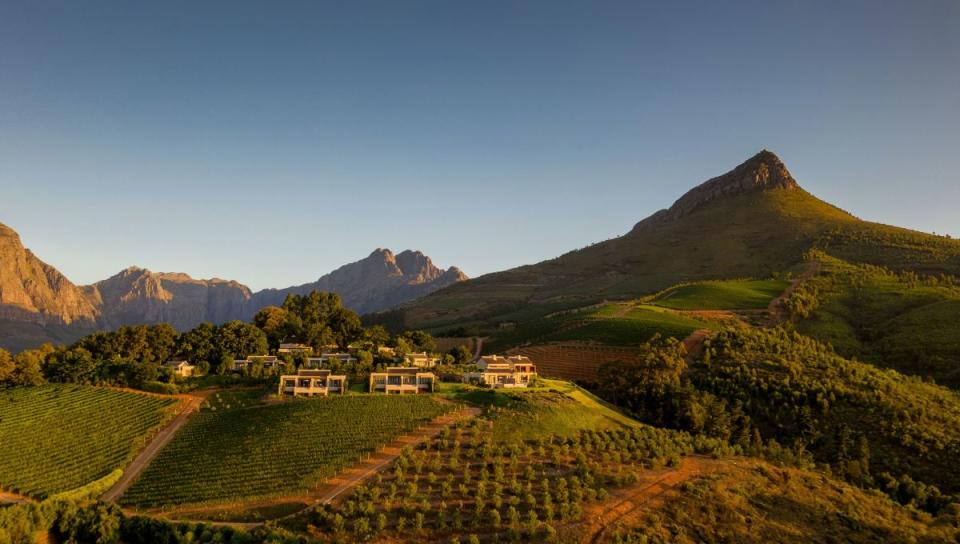
Courtesy of Delaire Graff Estate
Over the past few years, we've witnessed notable shifts in weather patterns that have significantly impacted our growing season. One of the most conspicuous changes has been the alteration of seasons. We've experienced late rains, an early onset of autumn with cooler and wetter weather during the latter stages of harvest.
At Delaire, we recognize the importance of responsible water management, considering our reliance on natural water sources. To address this, we've implemented a range of strategies, including the meticulous management of our water resources. Notably, in our new vineyard plantings, we've opted for drought-resistant rootstocks, a proactive measure to conserve water resources.
Furthermore, our commitment to sustainability extends to the use of nutrient-rich cover crops during the winter months. This practice not only replenishes valuable nutrients to our vineyards but also provides natural mulching, contributing to the overall health and longevity of our vineyards.
Through these efforts, we aim to ensure the sustainability and vitality of our vineyards for many years to come.
We are dedicated to environmentally friendly and sustainable garden practices, which include zero-waste composting and a wormery. We endeavor to expand our recycling program to its fullest potential.
We have an established vegetable garden and greenhouse on the Estate supplying Delaire Graff Restaurant and Hōseki Restaurant with fresh produce on their menus. The balance is provided by local suppliers who share the same philosophy of organic and ethical gardening. We use borehole water from the estate for the hotel, spa, and restaurants. We monitor water consumption on a weekly basis to ensure responsible use. We then recycle gray water from these outlets for the irrigation of our gardens.
“Our commitment to regenerative and sustainable farming at Delaire Graff Estate is a reflection of our dedication to protecting the future of our environment. We believe that every vineyard tells a story, not only through the wines it produces but also through the way it cares for the land. By nurturing our vineyards with respect for the earth, we ensure that the legacy we leave behind is one of thriving ecosystems, vibrant landscapes, and wines that capture the essence of our unique terroir.”
Morne Very – Winemaker at Delaire Graff Estate
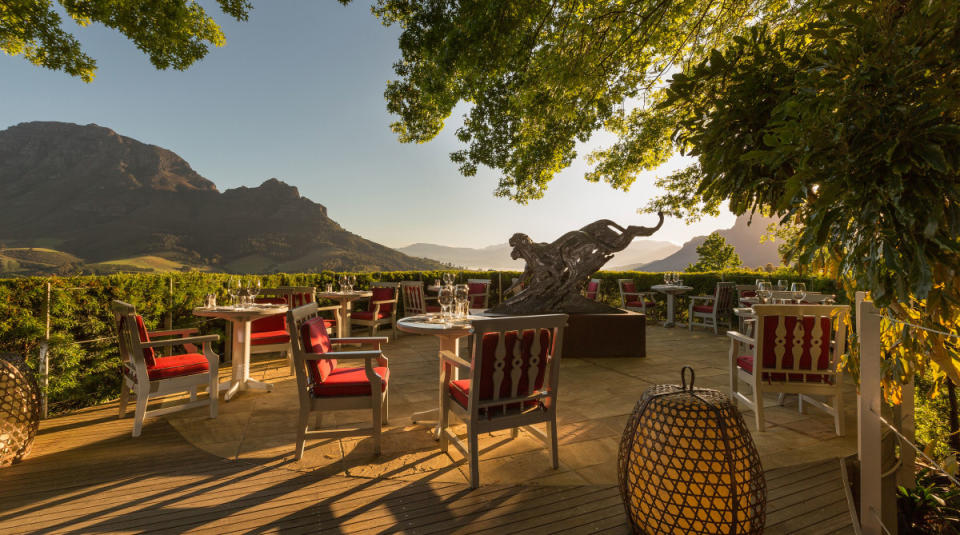
Restaurant Terrace at Delaire Graff Estate
Courtesy of Delaire Graff Estate | Photo by Dylan Lewis
View the 12 images of this gallery on the original article
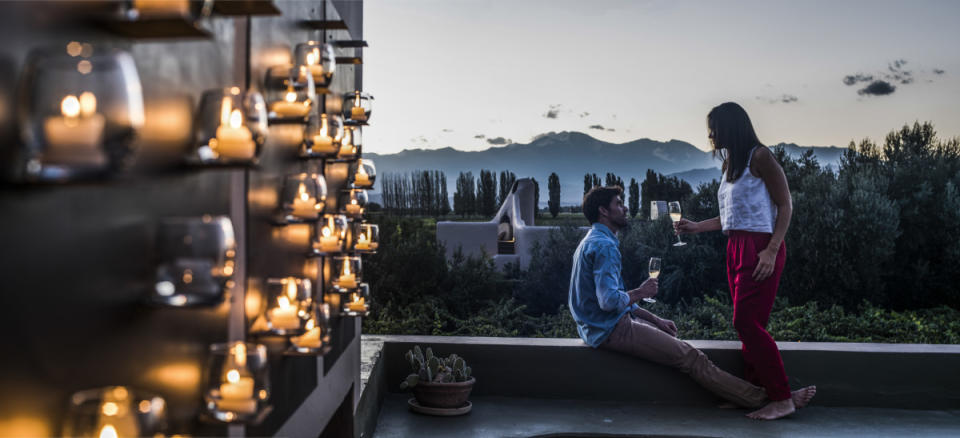
Courtesy of Cavas Wine Lodge
Mendoza is facing great challenges regarding climate change. There has been a drought for years, making water a very valuable asset. Cavas Wine Lodge is the first hotel in the region that reutilizes water from wash hand basins, showers and baths, recycled on-site for landscape irrigation. We have had terrible hail storms, losing all our grapes and plants in one day. We have bought special cloth to protect our main plants. We grow many vegetables and fruits at the Lodge. The rest we purchase from local producers.
Victoria Stiles - Sales Manager, Cavas Wine Lodge
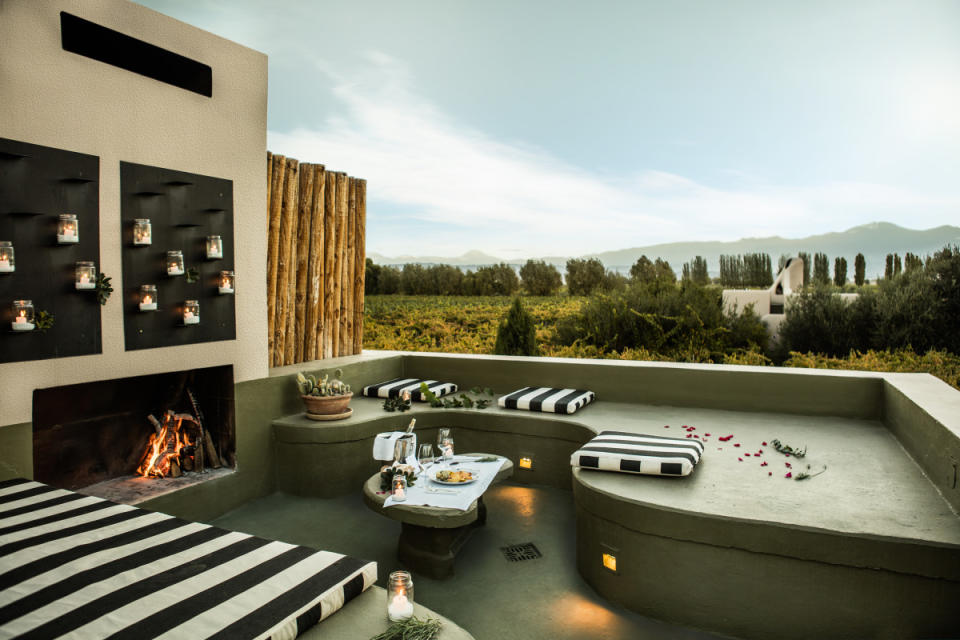
Vineyard Villa
Courtesy of Cavas Wine Lodge
View the 10 images of this gallery on the original article
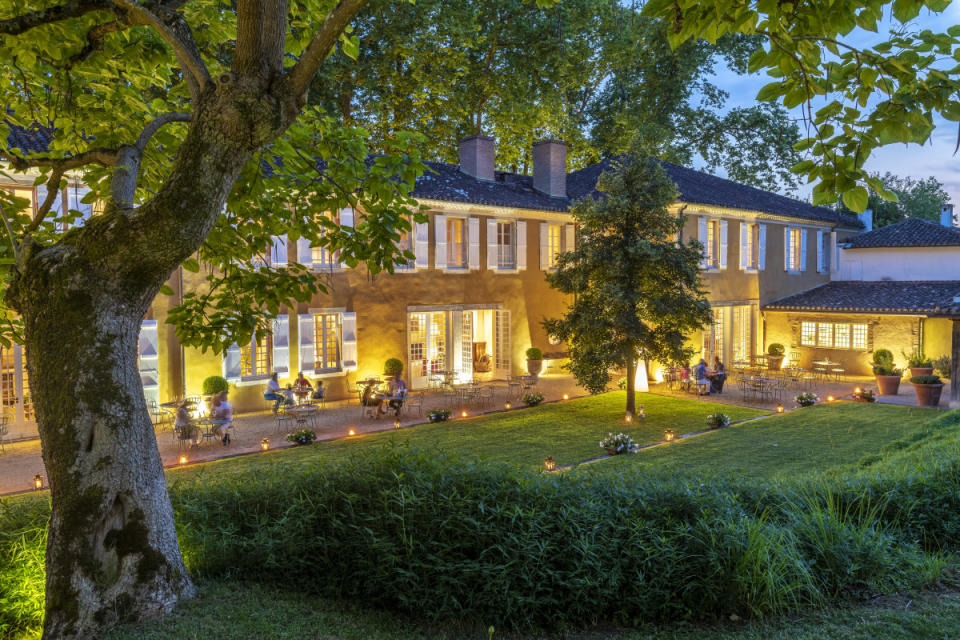
Courtesy of La Bastide en Gascogne
“In the Armagnac producing region of France, La Bastide de Gascogne is adapting to climate change by replanting hybrid and local grape varieties. As well as starting with a ground-up response, including the use of composts, cover crops and converting to organic and biological vineyard practices”
- Dan Andrews, Vineyard Manager of La Bastide en Gascogne (La Bastide owns a 40 hectares Armagnac estate since 1963).
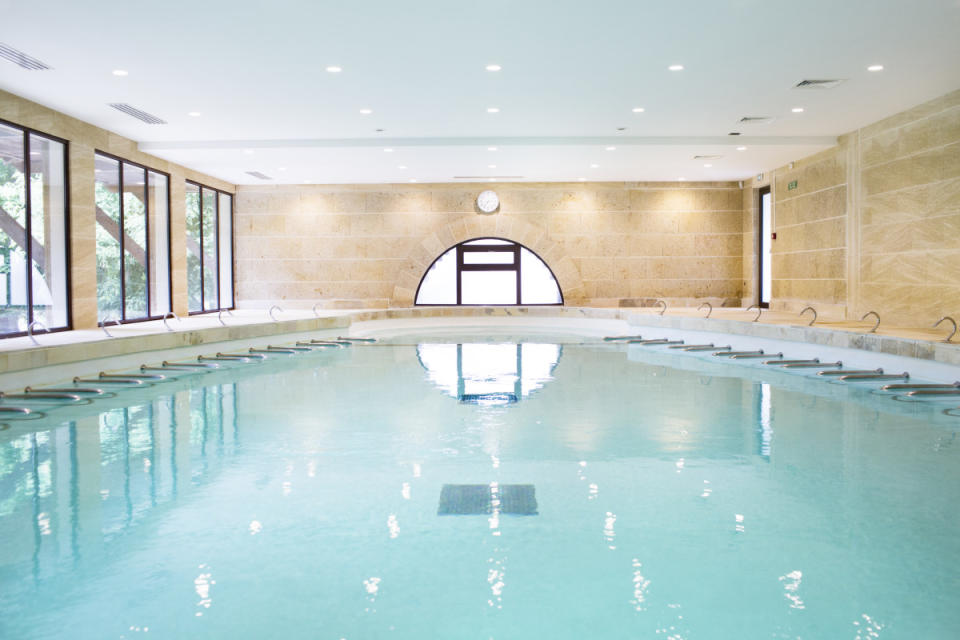
Spa Thermal Pool
Courtesy of La Bastide en Gascogne
View the 6 images of this gallery on the original article
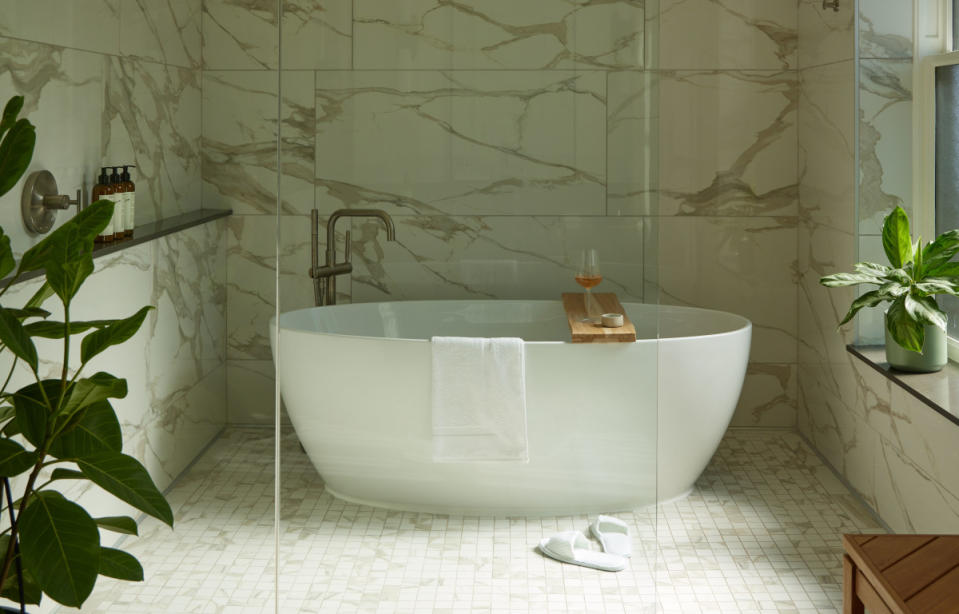
Courtesy of Tributary Hotel
Before we built the Tributary Hotel and ōkta Restaurant with dreams of creating a world class destination, my wife Katie and I purchased Bramble Hill Vineyard in the Ribbon Ridge Appellation. We fell in love with the farm, and with our farming and sustainability backgrounds (Shaun Kajiwara is VP of farming, and Katie Jackson is SVP of Sustainability at Jackson Family Wines) went to work on using regenerative farming practices with the goal to increase soil health and to promote a healthy whole farm ecosystem. Biodiversity, minimal tillage, planting a diverse cover crop, compost application and animal grazing are all regenerative farming practices.
Out of the 70 acres of farmland, only 20 acres are planted to grapes, the rest being wildlife corridors of forest, grazing pastures and in the last 2 years, the ōkta farm and larder which supplies much of the produce and fermentations for the restaurant. The future vision of the farm is to integrate more biodiversity to increase soil health. Dorper sheep now graze the vineyards, forests and fallow fields, and will graze down the garden beds post harvest. The manure from the sheep will give back to the soil, increase the soil organic carbon over time and stimulate beneficial microorganisms in the soil. Regenerative farming is not something where you check the boxes and you’ve reached a goal; it is a continuous learning and understanding of the farm and adopting practices over time with the hope that we’ve left the land in a better state than when we first started farming it.
At Tributary Hotel and ōkta Restaurant we have a strong focus on serving wines from family owned vineyards and wineries that are committed to sustainable practices, such as the LIVE certification in Oregon.
Shaun Kajiwara - Owner, Tributary Hotel, ōkta Restaurant, Bramble Hill Vineyard
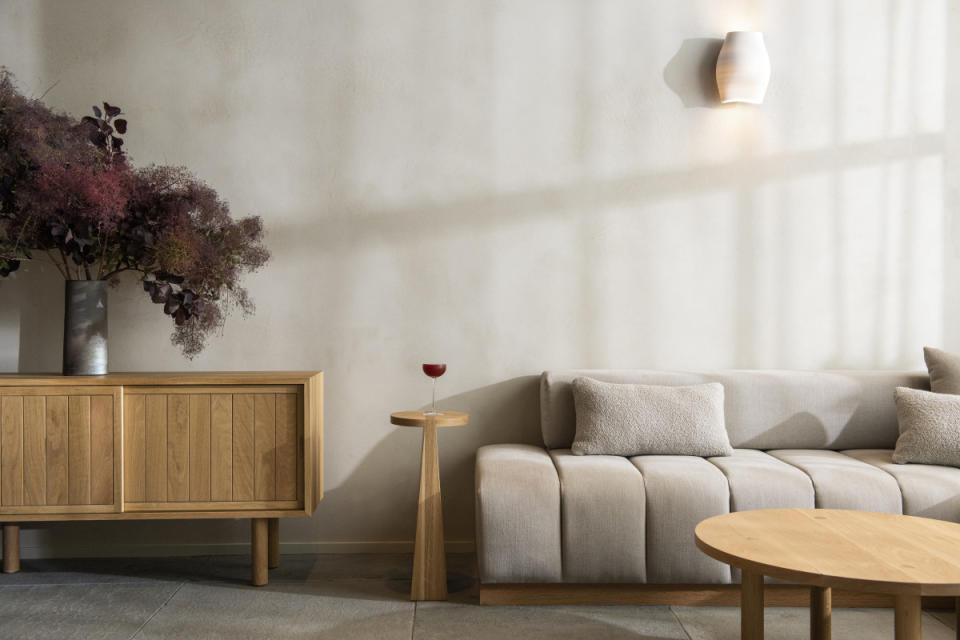
Inside the Tributary Hotel
Courtesy of Tributary Hotel
View the 8 images of this gallery on the original article
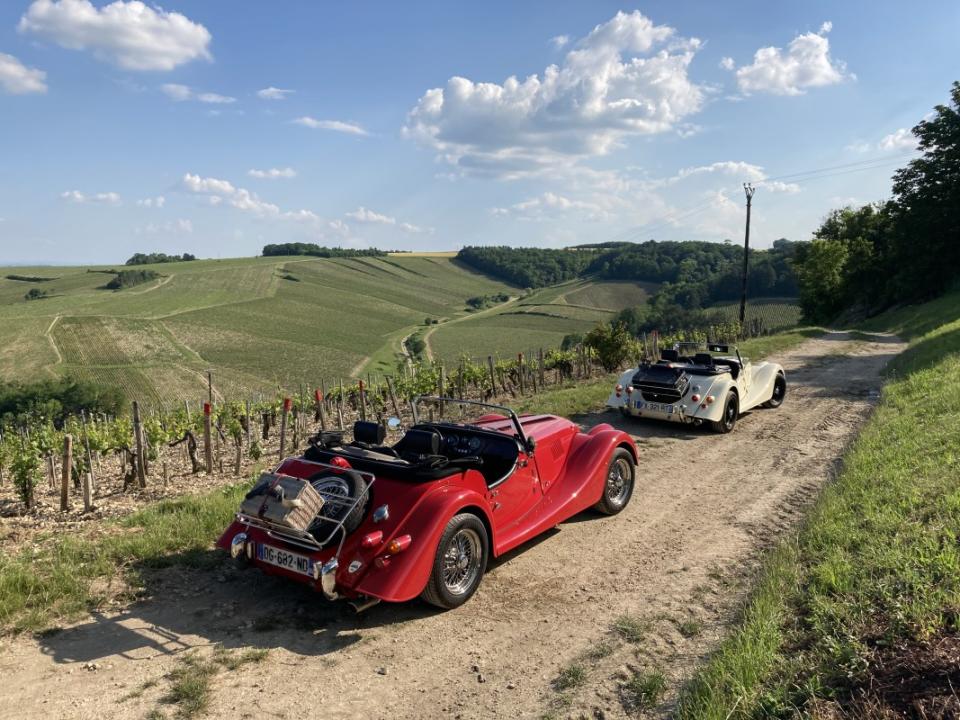
Courtesy of Hostellerie de Levernois
“Global warming and its effects is in our glasses! Since 2003, a record-breaking year for heatwaves, we've seen early harvests that began almost a month earlier. Today, we can say that every other year is considered a 'solar' vintage. These changes not only affect the taste of the wine, but also our perception of it. At Hostellerie de Levernois in Burgundy, this is certainly the case. Burgundy wines have shown a significant rise in alcohol content in recent years, and we've noticed that our customers have become accustomed to this evolution, as it brings richness, gourmandise and instant pleasure! On the other hand, for a vintage like 2021, our customers were complaining about acidity and even a lack of body. Yet these were rather 'classic', well-balanced wines, more representative of Burgundy's heritage and terroir. This vintage was one or two alcoholic degrees lower than the average of the last 10 years. Ultimately, global warming is having an impact on our customers' palates, and for many, without them even realizing it.”
- David KUBLER, Head Sommelier at Hostellerie de Levernois
“Indeed, 2003 was a record year for temperatures and early harvesting. Conversely, 10 years later in 2013, we were harvesting on October 2!
We're obliged to adapt to the climate, as no two years are alike and each vintage is unique. In the past, harvesting at the end of September was relatively common. However, our last harvest start dates were much earlier: August 26 for 2022 and September 11 for the 2023 vintage.
We work with Chardonnay and Pinot Noir, two grape varieties that require a certain freshness. At the domaine, with my brother Romain, the challenge is to maintain this freshness even in sunny years. Domaine Taupenot-Merme is in the process of converting to organic farming, so we've always made a point of respecting our environment and the richness of our terroir. In sunny years, we have to adapt our way of working and our organization, for example by harvesting very early in the morning, or by working continuous days to avoid harvesting bunches that have been left in the sun for too long, so that our teams suffer less from the heat.
Faced with climate change and its impact on our vines, the key words are adaptability and responsiveness.”
- Virginie TAUPENOT, co-owner of Domaine Taupenot-Merme with her brother Romain TAUPENOT, Morey-Saint-Denis (her wines is sold in the restaurants on property)
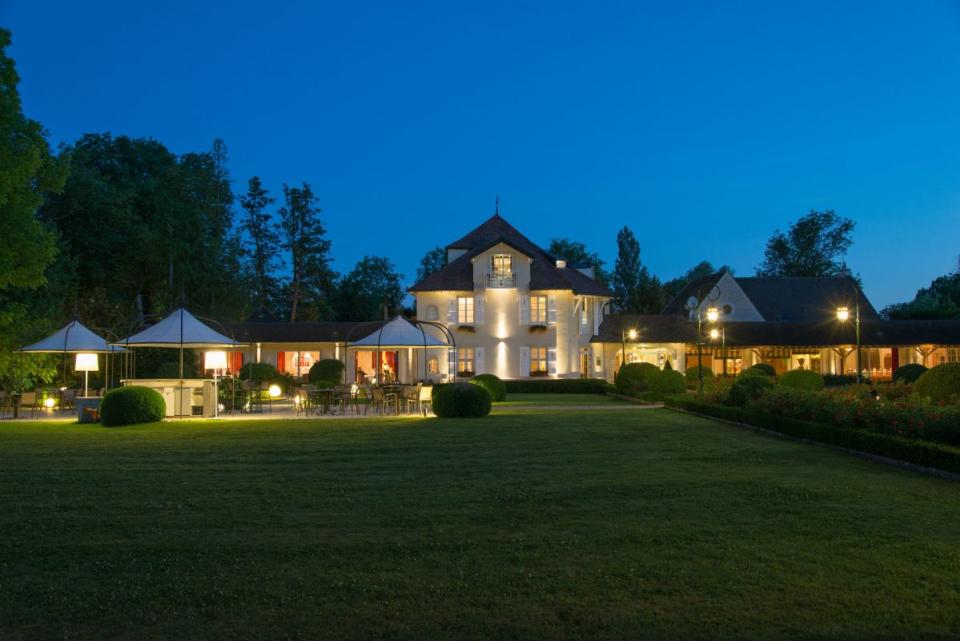
Facade at night
Courtesy of Hostellerie de Levernois
View the 6 images of this gallery on the original article

